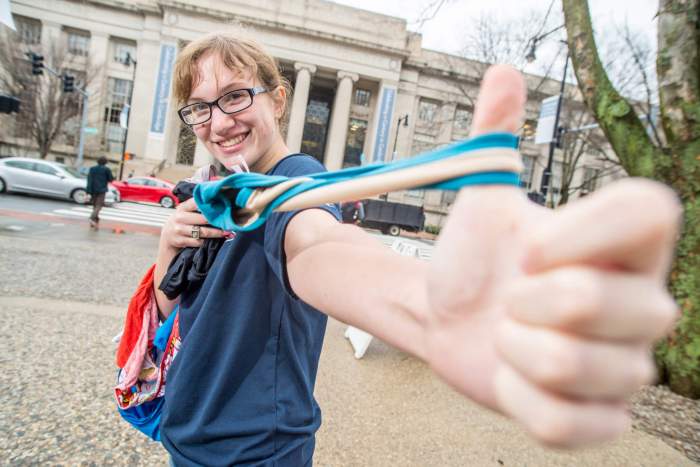The U.S. Navy is asking for help from young techies in the Boston area — but don’t worry, there’s no boot camp involved.
This weekend, hackers, academics and entrepreneurs will tackle national security problems at HACKtheMACHINE, a hackathon held at the Massachusetts Institute of Technology.
The Navy, contractor Booz Allen Hamilton and MIT have partnered up for the three-day event, from Sept. 22 to 24, to lure tech-savvy millennials to the military branch, no sea legs needed.
“What we’re trying to do is build the Blue Angels for geeks,” said Commander Zachary Staples, director of the Naval Postgraduate School’s Center for Cyber Warfare. “What we’re trying to do is just inspire people, show that there are really interesting and very important problems to solve in the maritime and national security space.”
Cyber crimes have been spreading, and the Navy is ready to defend the country from such threats — it just needs some help. But there’s a disconnect between tech-focused millennials and their image of the Navy, Staples said.
“We’re not push ups and sit ups — particularly not the Navy,” he said. “We are out there trying to be at the very cutting edge interface, in the digital space between cyber security, artificial intelligence, data science and human-machine teaming.”
At HACKtheMACHINE, techies can try their hand at building solutions for three challenges: hack a network system to reroute ships and guide vessels through rough water; develop algorithms to predict and identify the implications of a cyber attack; and design a virtual reality interface for a robotic submarine that will be used in disaster relief efforts.
More than 400 people from local schools and startups have signed up, said Brian MacCarthy, principal of Booz Allen Hamilton’s Strategic Innovation Group. To him, the best part of this effort is getting these people interested in solving real world problems.
“You don’t have to cut your hair and wear a uniform to help us fight in this mission,” he said. “We’re talking about global challenges — maritime security to disaster relief.”
Staples had the same sentiment. The Navy has already been on the forefront of innovations like GPS and even Siri, and he thinks tech advances in his world spur the best benefits.
“We’re doing this because we need to excite and engage the millennial generation so they understand there’s an opportunity to have a social impact on something that really matters,” he said, “instead of just building an app that delivers pizza better.”
























